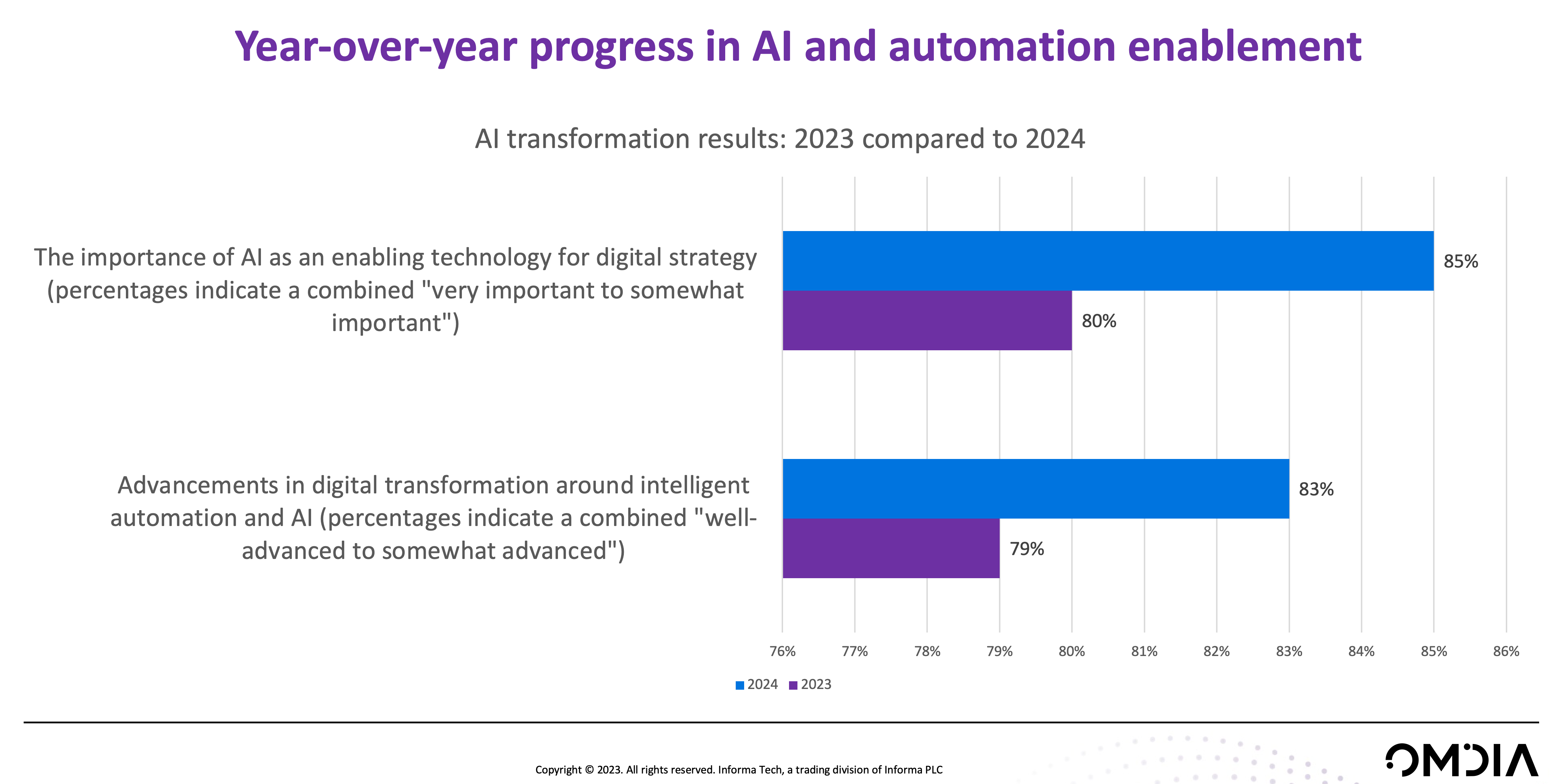As part of our coverage of the year that was, 2023 edition, we asked Mila D'Antonio of Omdia to provide her thoughts on a few trends that emerged through a year of weekly No Jitter Roll coverage.
One of the major trends was, of course, generative AI and its incorporation into the contact center. NJ also noticed an ongoing discussion around the idea of potentially bringing a customer into direct communication with a company’s internal knowledge worker who can more effectively address that customer’s issue. NJ wondered if that was a trend with staying power or if it might fizzle.
Finally, because the year was rife with big announcements, NJ asked D’Antonio to highlight what she thought were some of the stand-out trends.
No Jitter (NJ): This was basically the "year of introduction" for Gen AI into contact center solutions through assistance, summarization, etc. What does matter with respect to Gen AI in CX and contact center?
Mila D’Antonio (MD): I think last year’s introduction of generative AI helped to highlight how an AI-first approach can be preferable because of the rapid resolution and personalized engagement that it enables. In doing so, the advent of generative AI helped to pivot the market to where the business need will start to drive investments and innovations in the technology.
With that said, in 2023, most of the players in the contact center and customer engagement market were on an even playing field. They have universally introduced new functionalities and capabilities aimed at leveraging the potential of generative AI for improving customer experiences and agent productivity, from generating and summarizing conversations to integrating workflows.
The vendors who will emerge as the true leaders in 2024 will be those who can successfully tackle three issues: security and responsibility, the ability to scale beyond the initial use cases, and introducing specialized large language models (LLMs).
Competitive differentiation will come in the form of governance processes that unite stakeholders, evaluate risks and business impact of companies’ AI systems, and offer necessary guardrails to mitigate risk and ensure compliance with data privacy regulations.
Transitioning to customized LLMs will also attain a competitive advantage in the ever-evolving AI landscape, plus foster innovation and tackle industry-specific obstacles. Vendors that can create and manage their own specialized LLMs will be adding a powerful tool to their technology stack.
Finally, once a company gets beyond experimentation and the low-hanging fruit, scaling across the organization becomes an issue because of barriers such as computing costs. The vendors that can seamlessly integrate generative AI capabilities into existing software and platforms will ensure compatibility, scalability, and ease of use for contact center agents.
NJ: Is this idea of potentially "uniting" the customer and agent more quickly/directly with an "internal knowledge worker who has the answer" really a viable approach?
MD: It will not only be viable, it will become the primary customer service model in the coming years especially as AI technology advances and adoption of AI in the contact center grows. There are also several macro-economic factors driving a higher level of interest in uniting agents with knowledge workers. That’s the shift to remote working, a focus on customer satisfaction, and a desire to improve contact center efficiencies.
I think we are seeing businesses adopt this next phase of customer service where subject matter experts across the enterprise and even outside of the enterprise, become “expert agents” who take the specialized or complex calls. These are the calls that get escalated to a higher-level professional. This model works well in industries such as healthcare and insurance. For example, those in the healthcare industry are increasingly filling the role of agents with nurses who can share their expertise with patients as well as deliver a level of compassion.
NJ: What are some key trends in the CCaaS / contact center / CX space that you are seeing and/or need attention?
MD: There are a few trends I’d like to highlight. First off, I think end-to-end platforms will be pivotal drivers in evolving the CX market. Investments in end-to-end platforms that elevate and enhance CX across the enterprise will continue to be pivotal drivers in the evolution of the customer engagement market. The transformation will help enterprises gain a holistic view of customer interactions, preferences, and behaviors across touchpoints, leading to personalized experiences. According to Omdia’s IT Enterprise Insights: IT Drivers and Technology Priorities – 2024 customer engagement platforms (CEPs) will experience a 10% increase in enterprises planning to invest in the technology over the next 18 months. This spotlights the need for businesses to break free from channel and data complexity to establish a foundation that enables omnichannel personalization, agility, and scalability.
Second, workforce engagement and collaboration will play a vital role in shaping CX. Workforce engagement and employee collaboration are crucial elements that significantly impact customer engagement within an organization. According to Omdia’s ICT Enterprise Insights Drivers and Priorities: 2024 when asked about their priorities around ‘future of work’ initiatives, “improving the customer experience” ranked as respondents’ top priority with 30% citing that as their primary goal. When employees work together cohesively, they can better understand customer needs, share insights, and collectively innovate around solutions and ideas to address customer concerns or improve their experience.
Finally, advanced AI solutions will elevate and personalize customer experiences. Aside from generative AI moving from the year of introduction in 2023 to advancing more widespread innovation in 2024, investments in advanced AI solutions will also mark a significant leap forward in revolutionizing customer engagement strategies.
For example, AI's role in enabling digital technology is increasingly crucial as it underpins efficiency, personalization, innovation, and competitiveness in the digital landscape. According to Omdia’s ICT Enterprise Insights Drivers and Priorities: 2024, transformation progress around customer experience also increased from 83% to 86% -- which is not surprising. What is more interesting is what’s shown in the following graphic: The level of importance of AI as an enabling strategy for digital saw a 5-percentage point jump over 2023 (from 80% to 85%), and the percentage of companies that advanced their digital transformation around AI and automation increased 4 percentage points (from 79% to 83%).
The integration of AI technologies promises to profoundly transform how businesses interact with and cater to their customers. AI will become the panacea for the contact center.










